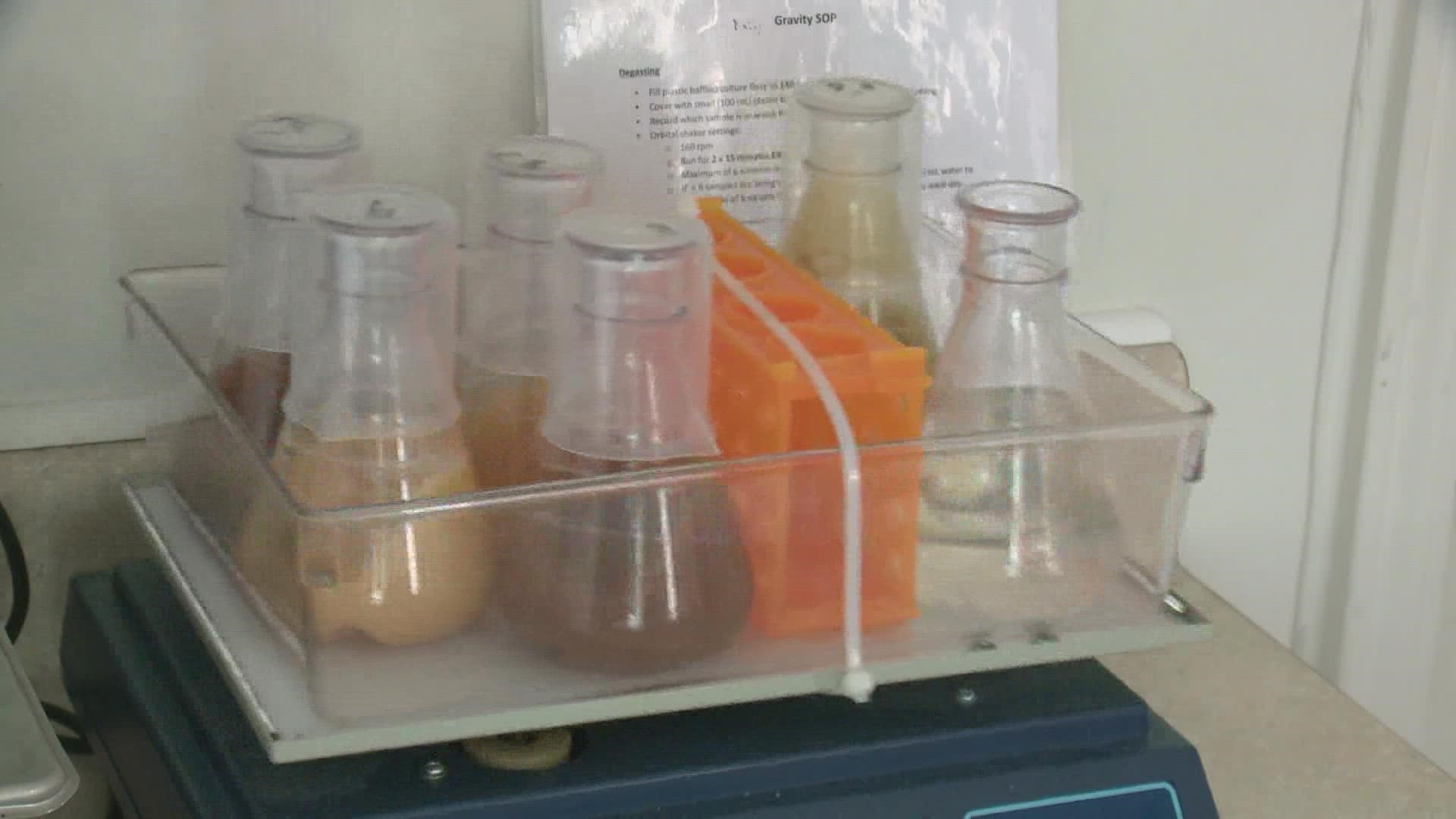PORTLAND, Maine — Stopping by a brewery to sample some beers is something that incites a few senses. Even if you’re not a beer aficionado, you’re likely paying attention to the way a beer looks, the smell as you raise the glass, and the taste. All of that is science.
"I had no idea that I would use my PhD for a brewery," Christie Mahaffey laughs. She's the director of quality control and one of the founders of Foundation Brewing Company.
"We check the specific gravity of the beer every day. We check the pH every day. We screen for any microbiological contaminants at several points through the brewing and fermentation and packaging processes," Mahaffey explains. "All of that happens in the lab."
The lab is a kitchen filled with beakers and testing equipment, even an intern who, by the way, already has a background in engineering and is now studying physics.
"I’m working on a satellite project the University [of Southern Maine] has going on," says Sean Stoner. "This popped up for the summer and so I applied for this." Stoner will continue his internship at Foundation into the fall. "My dream would be to get my doctorate and actually do research in physics."
Right now his research focuses on the chemical compounds in beer, but everything Sean Stoner is doing at Foundation is rounding out his education.
"One of the reasons we got started down this path was looking for ways to engage our students. What excites our undergraduates? And beer absolutely will do that," says Luci Benedict, the founder of the Quality Control Collaboratory at the University of Southern Maine.
Students and their professors put Maine beers to the test inside this "beer lab."
"We can look at how much alcohol is in the beer, how many calories, how much protein, carbohydrates, those nutritional values you think of in beer," Benedict explains. "We also look at color, what does the color look like? If the color changes there’s something in the process that changed. We can also look for other things like microbes that may have contaminated beer, to make sure that the beer is in a good shape to ship out to the consumer and it won’t change over time."
Benedict is an associate professor for the college, and with more than 150 licensed breweries in Maine, the QC2 lab is helping to fill a void. Even for larger brewers like Foundation with an on-site lab and scientist, the QC2 lab helps confirm testing or digs deeper into more complicated results. Benedict and her team also provide on-site workshops to smaller brewers, teaching the science behind the beer.
"We work with a dozen breweries on a regular basis who are sending their samples in weekly. Overall we’ve worked with over 80 brewers in New England. We also have breweries in Texas and we worked with one in Chicago, so we've worked with a lot of breweries. A lot in the state of Maine, though," Benedict says.
Even the newest arrivals, like Après Drinks, which mixes up boozy seltzers and ciders in Portland.
"We really couldn’t do what we do without them," says Ian Goering, the head of production at Après. He says he brings samples to the QC2 lab at least twice a week.
"Our process is that we’re starting with 95% ABV spirits and we are infusing fresh fruit into them, so that infusion is getting diluted at an unknown rate and that’s what we try to figure out on our own: mass difference or volume difference, and the numbers just never really reflected what was actually happening," says Goering.
"It’s great that the University can have that," Goering says about the QC2 lab. "Teach their students that are hopefully our future employees how to use that equipment, and then for a pretty reasonable price we are able to utilize that lab. And it’s really helping out a lot of small breweries and beverage manufacturers around here."
Whether quality control of flavor, consistency, or smell, or just overall safety, Maine’s brewers are really putting the work into a quality product, with a little creativity and a whole lot of science.
RELATED: Non-alcoholic beer trend on the rise
More stories from 207:

